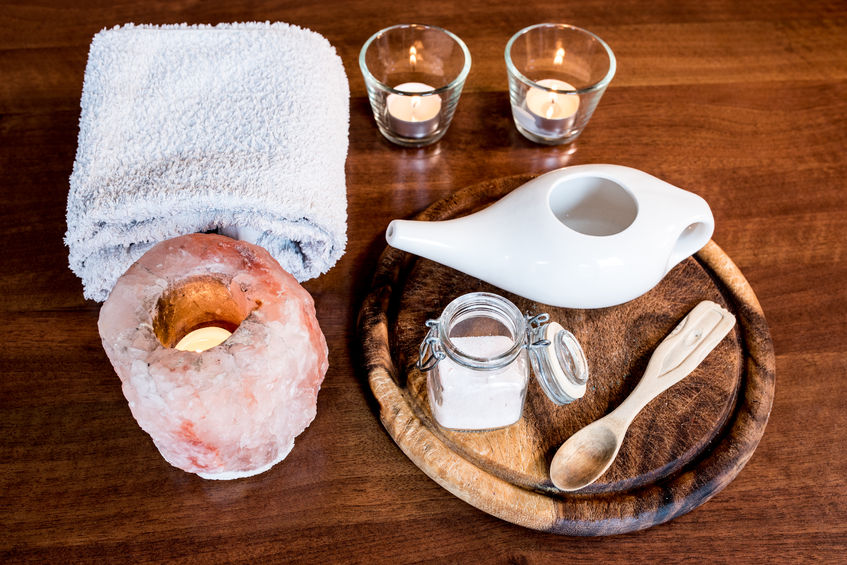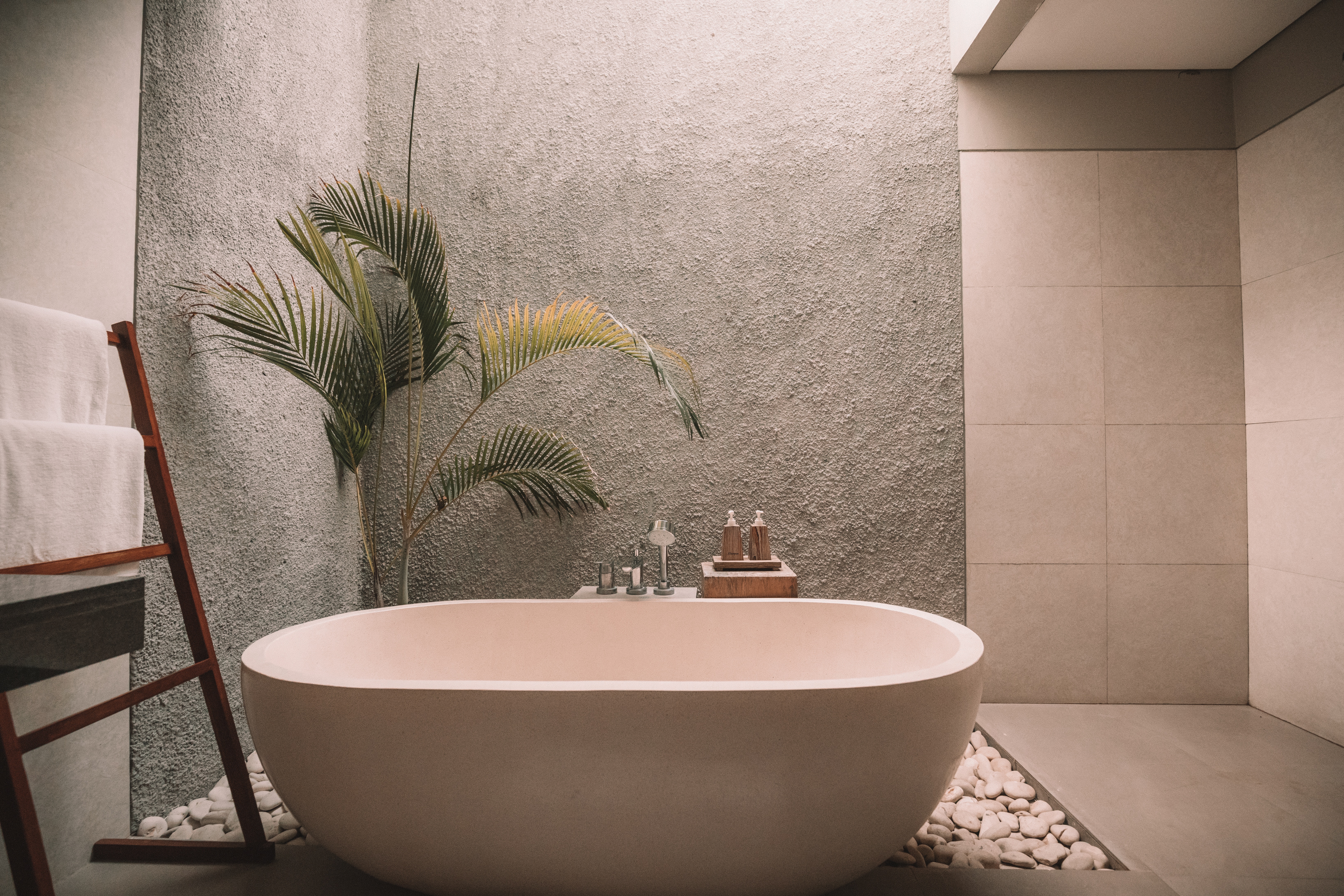6 Steps to a 60 Minute Ayurvedic Daily Routine
Published on September 3rd, 2018Do you struggle to get through the day?
Do you have trouble sleeping?
Do you feel like your digestion is off and your mind is foggy?
You’re not alone! I felt this way too before I began this simple 6 step daily routine.
A Daily Ayurvedic Routine, also known as Dinacharya is essential to help reconnect us to our natural circadian rhythm. It helps balance our Dosha and regulates our body aiding in digestion, mental clarity, and physical well-being.
From a medical perspective, our biological clock is connected to our body’s organs. For example, from 4am to 6am, our kidneys and colon are most active and thus when we wake up at 6am, we naturally need to urinate, defecate, and may even be flatulent. Between 10am to noon, the stomach secretes more hydrochloric acid and thus we feel hungry.
Our bodies are smart, if we eat at midnight every night, our body will naturally feel hungry everyday at midnight. However, this is not the most beneficial time to eat according to chronological time which is created by the movement of the Earth. According to Ayurveda, following a daily regimen trains your biological clock according to the clock of nature. This brings balance to the mind, body, and consciousness.
60 minute Morning Dinacharya:
A normal morning Ayurvedic routine may follow a different regime and can become very elaborate, but I do not have unlimited time in the mornings and so I do what works best for me in the 60 minutes that I do have. If you’re thinking to yourself, an hour is a long time, no way I have that time, and I’m a busy mom of a wild child (or two!), read my post on Self-Care for Busy Moms.
1. Wake up early in the morning
Ayurvedic scriptures state that the best time to wake up is before the sun rises. This brings peace of mind. Based on your mind-body type, Vata-type should rise around 6am, Pitta-type at 5:30am, and Kapha at 4:30am. To find out your mind-body type, click here.
2. Drink Water
Drink a glass of room temperature water preferably from a pure copper vessel which was filled before you went to bed. When using a copper vessel, it is important to note that you are allowing copper deposits into your body and if you do this daily, you must give your body a one month break every 3 months to naturally eliminate the excess copper buildup. Copper is known to promote healthy bones, boost immunity, and improve nervous system functioning. During your one month break, you can use a stainless steel, clay or glass cup for your water.
3. Head to the bathroom (20 minutes)

-Begin by splashing your face and eyes with cold water (5-7 times).
-Scrape your tongue with a stainless steel tongue scraper – this metal is balancing for all three Doshas. Pure copper tongue scrapers are now widely available, these are good for the Kapha mind-body type. Tongue scraping eliminates toxins, stimulates your internal organs, and aids in digestion.
-Brush your teeth preferably with a soft toothbrush and bitter toothpaste. A neem toothpaste is preferred as it provides antibacterial properties.
-Next, you can use the Neti pot to clear your sinus passages followed by Nasya, which is essentially placing 3-5 drops of warm ghee/nasya oil in your nose to provide lubrication to the nasal passages. It is most beneficial to Vata individuals and helps with neck stiffness, Temporomandibular Joint Dysfunction (TMJ), headaches, and with mental and emotional stress/anxiety.
-Now is a good time for bowel evacuation, it may not happen right away but your body will adapt with time. General rule of thumb, try to have a bowel movement within one hour of awakening.
4. Exercise (15 minutes)

-Exercise, especially yoga improves circulation, strength, and endurance. Sun salutations x 7-12 are the easiest way to get in your morning exercise. If you’re able to be in direct sunlight while doing them, that’s even better.
-Now, sit in a comfortable seat and take 3-5 deep nostril breaths- take a breath for 4 counts, hold for 4 counts, and then exhale for 4 counts. After you’ve completed the deep breathing, give yourself 5 minutes of calm to meditate (this should ideally be done for at least 30 minutes so if you have the time, go for it!). Meditation will help bring clarity and peace setting you up for a great day ahead.
5. Shower (15 minutes)

-Head back to the bathroom, place 2-3 tsp of sesame oil or any “oil pulling” oil in your mouth and swish it around vigorously for at least 3 minutes to strengthen your teeth and gums. Ideally, try to swish it around in the mouth until the nose or eyes start to run.
-While doing this, you can begin applying oil to your body for self-massage (Abhayanga). Gently massage in circular motions. If you have the time, you can also dry brush your body (also in circular motions moving from outward towards your heart in long strokes) prior to the oil massage.
-You can spit out the oil in your mouth at this time and jump into the shower.
(I haven’t accounted for the time it takes to “get ready” especially if you’re heading off to work and need to do your hair/makeup and get dressed all within these 60 minutes. I’m lucky enough to get to throw on scrubs every morning so it takes me no more than 5 minutes to make myself look presentable – not sure if that’s a good thing! If you require additional time, I suggest maybe skipping abhayanga/dry brushing and saving it for the weekends!)
6. Breakfast (10 minutes)

I usually start off with a warm glass of lime water. You can then chew on half a teaspoon of sesame seeds (a good source of calcium that helps to ignite your digestive fire!) while preparing your breakfast which should be light yet filling-more on this later!
So what about the rest of the day?
Mid-Day Dinacharya

Have your largest meal of the day between 10am and 2pm. This is usually not feasible for most of us as we’re at work or out of the house during lunch time. My opinion is that it’s OK to have a light lunch- maybe a Dosha specific soup or a seasonal salad, just have dinner as early as possible, preferably by 5pm.
Night-time Dinacharya

-Try to have your dinner by 5pm. Ideally, the lighter the better.
-Do something spiritual! Whether it’s light reading, praying, meditation, or anything else that you find calming, this will prepare you for a restful night’s sleep.
-Make yourself some CCF or Triphala tea or take one to two 500mg tablets at least 30 minutes before bedtime. More on the benefits of Triphala here.
-Go to bed by 10pm! Sweet dreams.
Leave me a comment letting me know how your Dinacharya is going and if there’s anything I can do to improve mine! I hope this helps you to create lifelong habits and brings more stability and balance in your life. After developing a successful Dinacharya, we can take it a step further and develop a Ritucharya – a seasonal routine but more on that at a later date.
If you have varying schedules from day to day like me where some days you’re off to work and other days you’re home (and if you have kids), be sure to check out my 7 Step Self-Care for Busy Moms post 🙂
Happy Monday and have a great week ahead!
Namaste
Don’t know where to start? Below are products that I have tried and tested, and use in my current daily Ayurvedic routine. Of course, I am always on a search for better products so be sure to leave me a comment and let me know what has worked best for you!
This post may contain Amazon Affiliate links from which I may earn a small commission. At Honey, Ghee, and Tea, my readers’ health and wellness is my #1 priority, therefore I only recommend products that I have personally tried myself.




Love this and how it’s in step by step instructions!!! Thanks for sharing!
Thank you! <3